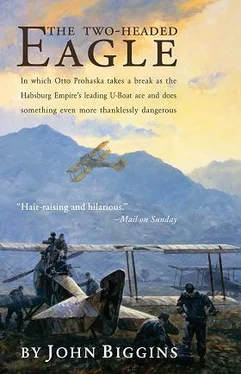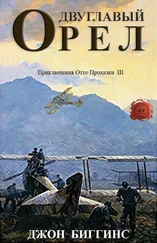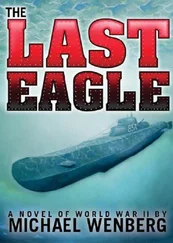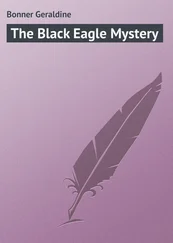That, it soon became clear, had been the easy part of our exploit. We were no sooner into the air and heading over the Lisert Marshes than the Italian flak gunners found our range again. They were not going to let us escape this time. Shells were bursting all round us as we climbed over the roofless, gutted buildings of Monfalcone, heading for the rim of the Carso and the safety of our own lines among the hills to the north-east of the town. Then the inevitable happened: there was a flash and a deafening concussion to starboard, and something hit my shoulder. As I regained my senses and Toth brought the aeroplane level again I saw that the starboard lower wing had been reduced to a fluttering jumble of smashed ribs and trailing rags of fabric; also that the fuselage and wings had been riddled by shell splinters, one of which (I later discovered) had gone through the shoulder of my flying jacket and grazed the skin beneath, leaving a faint brown burn-scar which I carry to this day. But that was not the worst: the engine was faltering as steam and boiling water hissed from the radiator above the upper wing. We ducked to avoid the scalding spray as Toth struggled to keep the aeroplane up. I looked ahead, and saw a low, bare, rat-coloured ridge of limestone looming ahead of us as we lost height. Its slopes were pocked with shell craters and streaked with the dark smudges of wire-belts. We were approaching the notorious ridge of the Svinjak.
The Svinjak—more or less “the Hill of the Pig” in Slovene—did indeed rather resemble a sleeping sow. Not that anyone would have given it a second glance before the war: it was merely a barren, eroded limestone ridge exactly like a hundred other such limestone ridges on the Carso Plateau; an arid jumble of rocks and scrub barely capable of providing a living for a herd of scrawny goats. But since the start of 1916 it had been one of the most ferociously contested parts of the Austro-Italian Front, constantly bombarded and fought over as the lines swayed up and down its desolate slopes. The Austrian strongpoint at the northern edge of the Carso, Monte San Michele, had been taken the week before, but the southern bastion here on the edge of the Adriatic had held firm, much to the dissatisfaction of General Cadorna, who clearly intended to capture our positions here—Hill 144 and the Svinjak and Debeli Vrh—and turn the Austrian flank. So Toth and I now found ourselves descending into one of the hotspots of European civilisation in the year 1916. The only question now was: would we be able to keep the Lloyd airborne long enough to be able to come down on our own side of the lines?
As it turned out the answer was: nearly but not quite. The engine failed as we crossed the Italian forward trenches, and we finally hit the ground about two-thirds of the way across no man’s land, just in front of our own first belt of wire. At first I thought that it would make little difference to us, hearing the fearful tearing crunch as the aeroplane’s undercarriage smashed and the belly skidded along the confusion of rocks that passed for ground in these parts. I think in fact that what saved us was hitting an outer line of barbed wire, which brought us to a halt like the arrester-wire on the deck of an aircraft carrier before we had skidded far enough for the aeroplane to break up around us. All I remember at any rate is a violent jolt as we came to a stop, then distentangling myself from Toth in the front of the cockpit and the two of us scrambling over the side, cut and bruised and shaken but otherwise unhurt, to dive for cover in a nearby shell hole as the first bullets whined around us.
My first instinct on tumbling into the crater was to tumble out again as quickly as possible and never mind the shots cracking overhead. Even with a hail of lead buzzing a couple of metres above our heads it was a shock to find that the hole was occupied already. As for the tenant, he seemed not to mind our intrusion; only grinned in welcome. It was evident at first glance that he had been here for quite some time. Still, it is remarkable, I have always found, how quickly one can grow accustomed to things which, in other circumstances, would make one’s flesh creep with revulsion; and this is doubly true when (as on this occasion) lifting one’s head above the lip of the crater to look for other accommodation would certainly mean having it blown off. Toth and I quickly reached the conclusion that, on balance, the dead are less threat than the living, and settled down to make the best of things, trying not to look at our silent companion lying on his back against the other side of the crater and gazing with empty eye sockets into the cloudless blue sky. I think that he had been an Italian, but I was not sure. Both armies wore grey, but if ours had a somewhat bluer tint and theirs a somewhat greener, months of sun and rain and dust had long since faded away such distinctions. I was not concerned anyway to carry out a post mortem: the dead have about them a silent finality that makes mock of such petty considerations as nationality.
I took stock of our position. We two had survived the crash intact, and if we were pinned down by the enemy’s fire for the rest of the the hours of daylight, I supposed that the Italians further down the hill would be similarly pinned down by our people and would not come bothering us. A small shell had landed near by just as we had scrambled into the crater, but there had been nothing since, so I concluded that the enemy would wait until dark, then send out a patrol to remove anything of interest from the wreck. My intention was that we should have left by then, after setting it alight.
So for the time being it just meant lying here in a shell crater under the blistering sun with a corpse for company, counting the hours until sundown. I looked at my wristwatch: 1135. That meant another ten hours grilling here before it would be dark enough to make a run for it. My mouth was already parched from excitement and exertion. It was going to be a long wait. Toth and I sought what shade we could, arranging our flying jackets into a crude awning across a couple of strands of barbed wire strung over a shattered rifle which we had found in the bottom of the hole. We settled down to wait, trying to ignore the huge blowflies which had already located us and were beginning to gather into a swarm. It puzzled me that with so many other items of interest in the area—as could readily be detected by the least sensitive nose—these insects should still pay such attention to the living.
Quite apart from the stench, the other feature of this wasteland that impressed itself upon me as we lay there that August morning was the unspeakable noise. This was what I supposed would be called “a quiet spell” on the Svinjak—which is to say that the two armies had temporarily exhausted themselves fighting over it. But even so the shells moaned and rumbled overhead incessantly, looking for the trackways and communication trenches behind the lines and the sweating ration parties trudging along them. Rifle fire crackled constantly along the line, like dry twigs in a stubble fire after harvest. It seemed that it needed only one shot in a sector to cause a blaze-up of musketry which would take several minutes to subside, much as one village dog barking in the night will set off all the other dogs in the district until they grow tired of it. If this was a quiet spell, I thought, what must a noisy one be like? Yet amid all this din one could sometimes make out curiously ordinary domestic sounds, like a latrine bucket clanking in a nearby trench, or someone chopping up ration boxes for firewood, or a man whistling: noises that reminded us that this bleak hillside, which only two years before had doubtless been as deserted as the Arctic tundra, was now as crowded with humanity as a city street.
Читать дальше












